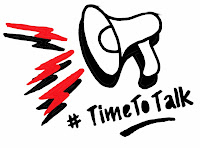In spite of the increased legitimacy of self-publishing, I've resisted this until now. Partly because, like most authors, I'd hoped for the validation of a traditional publishing deal. Mainly, though, because the wealth of choices surrounding the self-publishing process is overwhelming. The fact that I will have to make all of the decisions is both an advantage and a disadvantage of taking this route to publication.
The first, and possibly hardest, decision will be which company to use out of the many currently operating.
This won't be easy, given that I always research everything to the nth degree, whether household goods, holidays or a car, to ensure I select the best possible product. For something as important as my novel, it's imperative I get it right.
 |
| Photo: Peter Gettins Photography |
The next biggest hurdle will be letting go of the manuscript. Saying, once and for all, that it's 'good enough' will be extraordinarily hard, even after a professional copy edit and proofread. Knowing when to stop tinkering and checking is a problem I've written about before.
There are so many other choices to be made, too. I had trouble finalising the design of this blog and that isn't even set in stone. A hard copy book is an altogether different matter: I have no idea how I'll ever agree to a cover.
I plan to read as much about the process as I can - though I'll have to be careful not to turn that into never-ending procrastination - and to seek advice from existing self-published authors. Word-of-mouth recommendations and others' experience should help me to avoid some of the pitfalls.
The prospect of self-publication, and the many decisions it will entail, is daunting. It's also very exciting. Much more so than the alternative, of adding to my collection of rejections from agents and publishers: 45, if you include the 8 who never replied.
I also have enough positive feedback to encourage me: from professionals, readers and, indeed, many of you who follow this blog.
If I can accept, from the outset, that my novel won't be perfect - are any, after all? - I think I might just make it.
* * *
I'd love to hear your recommendations, tips or advice on self-publishing, if you've had experience of this.










